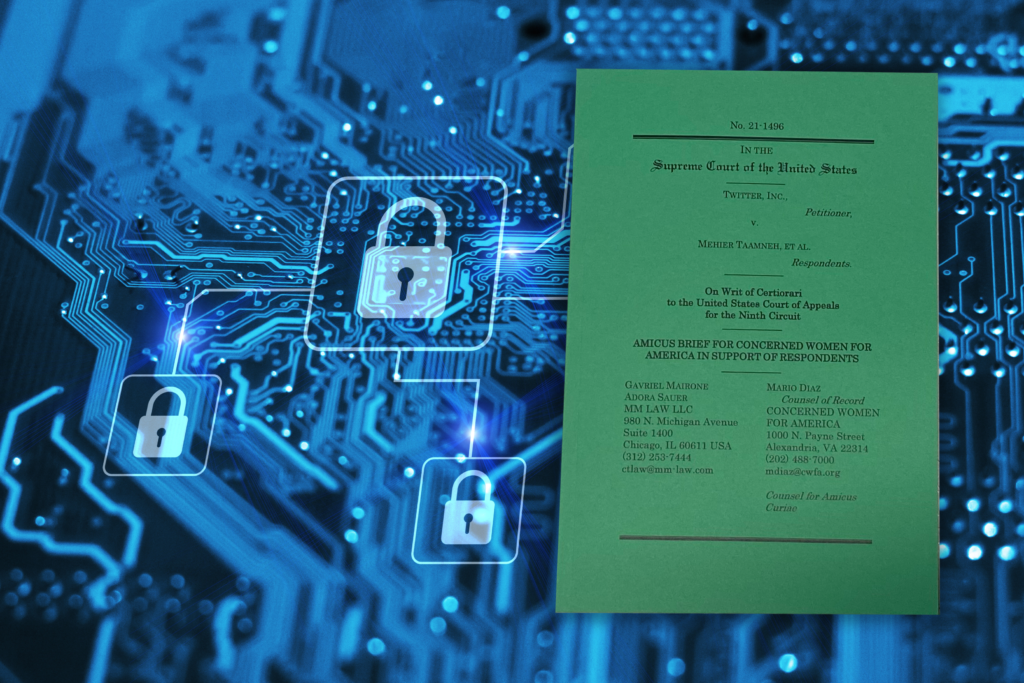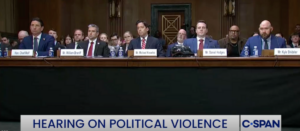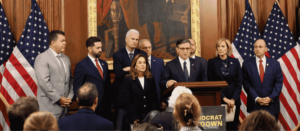One of the most concerning aspects of President Joe Biden’s Department of Justice’s malicious targeting of parents and others that merely disagree with the government-approved narrative as “domestic terrorists” is that it undermines the actual war against terrorism. The fact is that terrorist organizations like ISIS have pledged harm to our country, and our government has a duty to remain diligent in protecting our citizens from that clear and present danger.
Instead of wasting resources in going after political opponents, we must continue to unite against those who hate our American values. Yet, as the Twitter files have exposed, the U.S. Government’s intelligence apparatus has colluded with Big Tech, not to fight terrorism and protect U.S. citizens but to suppress free speech. This is wrong. We must be able to fight for our constitutional rights without losing our ability to focus and distinguish between these and genuine national security threats.
In a brief before the United States Supreme Court, Concerned Women for America (CWA) argues for such a distinction, and we seek to hold Big Tech accountable for turning a blind eye to real terrorist threats facing the nation, claiming technical inability and lack of resources, while displaying great power against our own citizens. In it, we say:
Because conservative organizations and other individuals and institutions that do not conform to conventional wisdom are increasingly likely to be silenced for expressing what government agencies and Defendants regard as “extreme and polarizing content,” CWA has a strong interest in protecting free speech, including on Defendants’ near monopolistic platforms. Simultaneously, however, CWA believes that foreign terrorist organizations (“FTOs”) like ISIS, and state sponsors of terrorism like Iran – rather than American citizens who disagree with COVID-related school closures or with policies allowing biological males to compete in women’s sports – pose an actual threat to our national security.
One must admit we have a problem when a social media company like Twitter, virtually controlling the modern public square, dares to remove a sitting President of the United States, preventing him from speaking freely to its citizens, while giving full access to the Taliban and several of its most prominent spokespeople even as they simultaneously conduct violent attacks against our country. Given that clear choice they have made, affirmatively taking steps to discredit one voice and give legitimacy to another, the company should not be free to wash its hands for the foreseeable consequences of its actions.
In Twitter, Inc. v. Taamneh, the U.S. Supreme Court will wrestle with the fact that though we now know that Big Tech is fully capable of removing content when they want to, it has chosen not to act in the case of straightforward illegal content choosing instead to focus its vast resources on the protected speech of its political opponents, hiding all the while under the alleged special liability protection the federal government has promised them under some laws, like the infamous Section 230.
One example has been especially evident since the takeover of Twitter by Elon Musk. In just a few months, Musk cleaned up Twitter of its child pornography problem simply by making it a top priority. The previous owner claimed this was impossible to do, despite their concerted, decades-long efforts to “do everything possible.”
Big Tech companies like Google and Meta (formerly Facebook) have become too powerful on the backs of the American people while avoiding the responsibilities that are required of U.S. companies in every other context. Mark Zuckerberg’s nearly half-a-billion dollars investment in the 2020 election, while controlling and manipulating political speech through its platform, is another timely and concerning example.
It is a complex problem that will undoubtedly need Congressional action too, but let us hope the U.S. Supreme Court can take steps to start curtailing its growing dangerous power.






